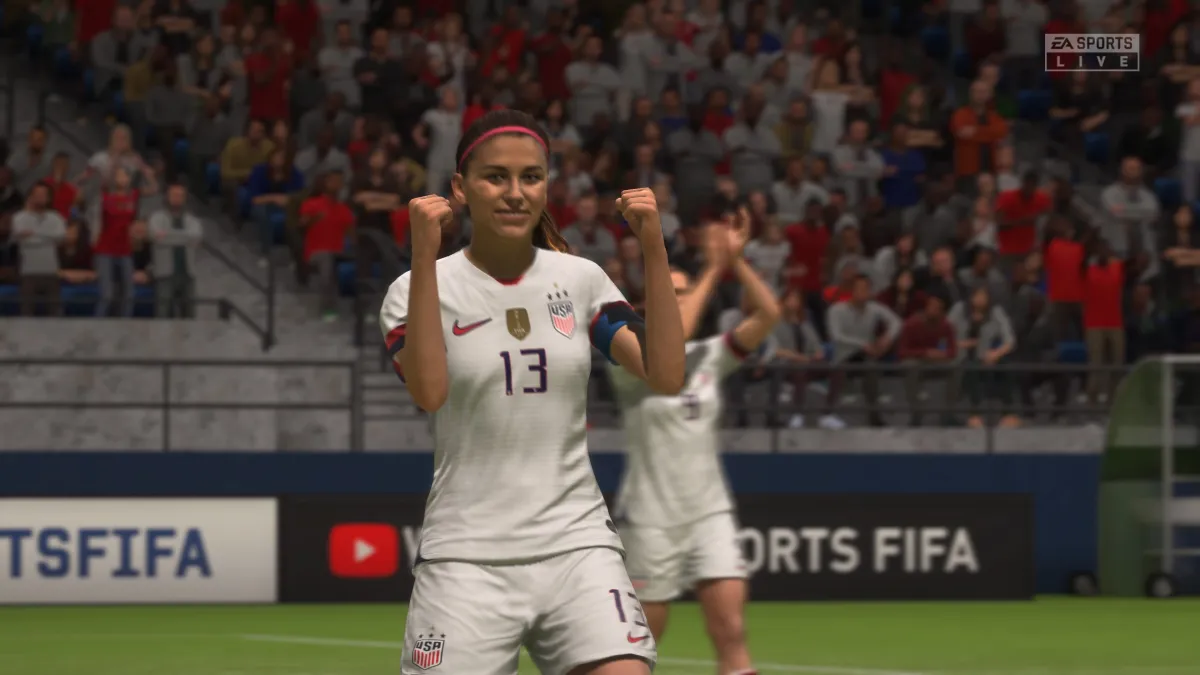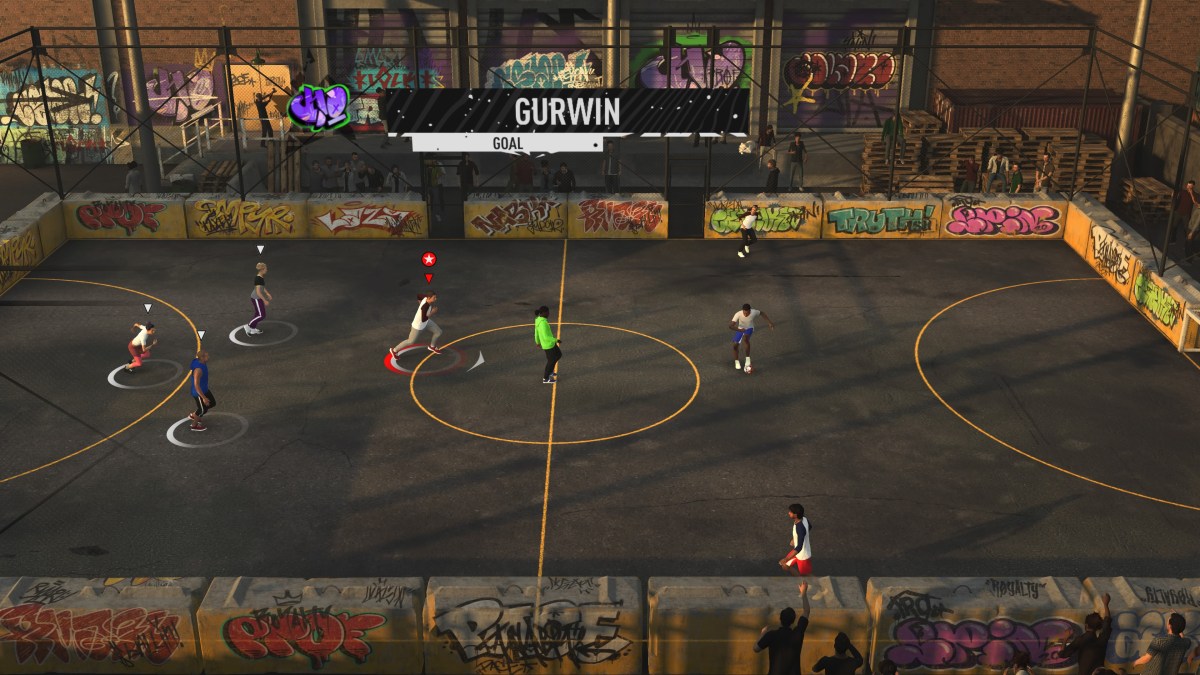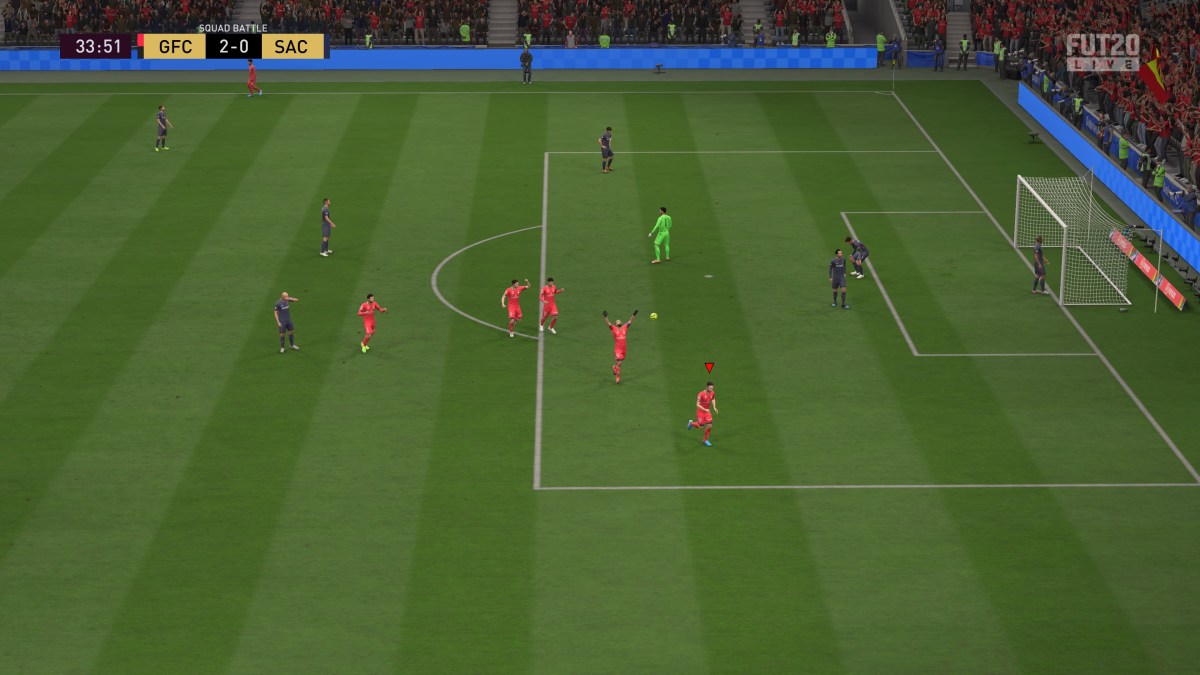- Volta Football is a blast
- A variety of ways to play Ultimate Team
- Soccer gameplay continues to shine
- Plenty of modes to keep you busy until next year
- Visuals are starting to show their age
- Full-scale story mode is missed
Electronic Arts has a tradition of releasing annual sports games, usually with incremental changes that don’t massively upend the formula from year-to-year. This is certainly the case with FIFA 19, a game that offered improvements that longtime fans appreciated, but without enough new content to entice newcomers.
It seems EA might have learned from last year’s game. The addition of an all-new way to play soccer in the new Volta mode gives FIFA 20 appeal for players of all skill levels. While most other improvements and additions are still minor, FIFA 20 is the best-playing game in the series to date.
A new journey
Last year’s game saw the final installment of “The Journey,” a story-based campaign mode focused on rising superstar Alex Hunter. It hasn’t been replaced by a traditional soccer story in FIFA 20, but we get something far more exciting instead: Volta Football.

The star of the mode is Revvy, a newcomer to the Volta squad J10, who is hoping to make a name for himself in a competitive field. After the team’s captain is sidelined with a major leg injury, he is thrust into the spotlight and must lead the team in games across multiple continents, ultimately culminating in the Volta World Championships.
Still full of cutscenes similar to The Journey, FIFA 20’s Volta story mode is a much more linear affair than its predecessor. There aren’t any dialogue options to pick during conversations, with the character’s argumentative attitude set in stone.
I wasn’t ready to be finished with Volta once the story wrapped.
You can still change other elements of the main character, such as their clothing and haircut, but the scope and emotional choices of Alex Hunter’s story are missed here. Rather than a reason to buy FIFA 20, its story mode feels like a very flashy way to learn the basics of Volta football. That’s a shame. Electronic Arts has shown a surprising knack for storytelling and understated emotional moments in The Journey over the years. We don’t really get to know who Revvy is, while Alex Hunter felt like a fully developed and believable character — even when removed from the pitch.
As for skills, you can make improvements to Revvy and his team. Skill points are earned after playing a few matches, and those points can be spent on improvements to things like passing and finishing shots. You can also recruit players to improve your team as you beat other squads. It makes the experience feel bigger than just the story mode, as the final team you end up with can vary pretty wildly depending on who you chose.
After finishing the story, the fun isn’t over. The same team can then be taken into additional Volta matches across the world, and you can even further improve their stats.
I wasn’t ready to be finished with Volta once the story wrapped. I had begun to build a team I was proud of, with many of Revvy’s skills still left to be unlocked. It made me want to continue grinding away in games and unlocking additional recruits.
Even if Volta football is a simplified version of traditional soccer, it’s a damn good one. Instead of playing on a huge grassy pitch, it’s played between a team of three and five people on asphalt and concrete, though there is a small grass field you can play on as well. It feels more like hockey than soccer, and this fast-paced style of play will appeal to players who aren’t fans of the low scores typically seen in the sport.
In most forms of Volta, a goalkeeper isn’t blocking shots at all times. Instead, a defender acts as a hybrid player who can also run into the action. There is no offside penalty, making it easier to line up a pass without worrying about positioning. It’s a great opportunity to learn how to shoot into narrow openings since the net is considerably smaller than in standard soccer.
By the time you master Volta, you’ll also have a solid understanding of the basics of soccer. The controls for shooting, passing, and dribbling are largely the same, so it doesn’t require players to start over from square one when shifting back to the traditional soccer modes.
No major changes
There are several smaller quality-of-life improvements and tweaks in FIFA 20. These certainly do improve on the formula we’ve seen from FIFA over the years, but there aren’t any huge changes here that will drastically change the game. Depending on your feelings toward the series thus far, that can be a good thing or a bad one.
A “composed finishing” system makes it more likely to score when in one-on-one situations, and tackling animations have been overhauled to reward timing. The ball also had its physics reworked to make for more realistic bounces and airtime. All of these changes are really only going to be noticeable to those who played an extensive amount of FIFA 19 recently.
A.I. does a relatively good job of keeping up with your decisions.
For those who come back to the series each year for a few months, it’s still remarkably difficult to pull off shots, especially early on. But you’ll gradually get the hang of timing and start making replay-worthy moments soon enough. Dedicated players will be able to improve their skills through practice and the huge number of shot types and maneuvers you can do encourages experimentation.
This means you’ll be at a pretty big disadvantage when playing an experienced opponent who knows all the moves, but it also leaves plenty of room for growth. Volta is still there for those who want to be able to pick up the game and have fun right away.
The A.I. does a relatively good job of keeping up with your decisions, moving into positions for passes and taking shots off of quick passes, though I did encounter one repeated situation where the pass would almost always be knocked right back to a player after sending it backward, resulting in more than one botched attack.
We didn’t see any comparable issues with the opposing A.I., who jumped on most situations and protected the ball when facing overly aggressive defenders. Player speed also seems to be relatively the same compared to last year, with the sprinting button still playing a huge role in breaks on both sides of the ball. Managing your stamina is a necessity, and keeping this in the back of your mind during hectic moments adds a nice level of strategy.
Certain defensive mechanics have also been reworked in FIFA 20. A system called “controlled tackling,” makes it more likely that the defender will knock a ball toward a teammate, and attackers will retain possession after successful tackles less frequently. With a slow jockey possible by pulling the left trigger, you can also consistently get in an attacker’s passing lane and intercept the ball. Feeling like you can always play an active role in getting the ball back makes defending just as engaging as lining up a shot.
Ultimate team
FIFA Ultimate Team remains one of the series’ best modes, letting you build up a roster of players using card packs and face off against other players or computer-controlled teams. It still relies heavily on virtual currency for packs, which can be purchased optionally using microtransactions.
FIFA Ultimate Team also offers new ways to earn rewards. A new feature coming to Ultimate Team this year is Season Objectives, which are milestones players can complete over a season through normal play. Rewards include high-level loan players that temporarily improve your squad, and I found the rate at which experience is earned to be fairly generous.

There are also Foundations Objectives, which help players learn the fundamentals of the games. There are also very long-term Milestone Objectives that can be slowly worked toward without having to actively prioritize them. The experience feels organic, as you can earn new players and items at a high enough rate to enjoy the game without spending money.
Career mode makes its return once again, allowing you to control a player or an entire team as a manager, and for the first time in FIFA, you can create a female manager. With a morale system that affects your players’ performance in matches, you need to keep them happy with good words in press conferences, as well as in one-on-one email chats.
It works perfectly fine in practice, but I wish the press conferences were more extensive. After answering just three questions, I was automatically forced to end things before I was ready. It threatens to take the “manager” portion of the mode out of the equation. Options for the transfer market, training, and scouting remain plentiful though, for people who like to get into the nitty-gritty details of their teams.
In need of fresh paint
FIFA 20’s modes are plentiful and its customization options are varied, however, it’s hard to overlook that it is starting to show its age. The Frostbite engine has never been the best at rendering human faces, and players can sometimes look a bit off. Superstars like Alex Morgan still resemble themselves, but there is a plastic quality to their skin that can break the immersion.
FIFA 20‘s players are less impressive up close.
Facial expressions come across as stiff making it difficult for players to truly emulate the likeness of the person they are modeled after. Though everything looks smooth from a distance during normal gameplay, FIFA 20‘s players are less impressive up close.
The environments still look excellent at least, especially the concrete Volta pitches. The grit and wear come through, especially in settings like Brazil. Surrounded by shacks that make it feel like a modest village, the paint on the pitch appears faded as if it has been the local kids’ stomping ground for years. Meanwhile, the glitz and glamour shine through in Tokyo, where the pitch is full of bright colors and surrounded by walls on top of a skyscraper.
Microtransactions
As is the case with nearly every Electronic Arts game these days, FIFA 20 has microtransactions. It still uses a loot-box-style system for FIFA Ultimate Team mode. While you earn coins through normal play, you can also purchase packs of cards using premium FIFA points, which cost about one cent per point for small increments.
Dedicated players can easily spend hundreds of dollars to get the team they desire, and as always, you never know if your ideal player is in the pack until you purchase it. As other genres move away from gambling-like mechanics in games, FIFA 20 sports them proudly. The odds of winning particular players are still provided, but they are currently quite lower than they were when I last checked FIFA 19.
It appears to be another way EA hopes to get more money from players, who must keep handing over cash for the small chance of unlocking a star player.
Our take
The Journey is sorely missed in FIFA 20, as the story we get instead simply isn’t up to the high standard of its predecessors. The visuals also lag behind other AAA sports titles. Despite this, FIFA 20 remains the best way to experience soccer in a game. It makes a few minor adjustments to the formula without breaking what’s worked for the series over the years. The biggest highlight of this year’s game is Volta Football, which offers a radically different take on “The Beautiful Game” that can even attract those who don’t enjoy traditional soccer.
Is there a better alternative?
No. FIFA 20 is a better version of an already great soccer game, though those who want story over all else will prefer FIFA 19.
How long will it last?
Volta story mode can be completed in just a few hours, but there is enough additional content to make the game last until next year.
Should you buy it?
Yes, especially if you want to try a less complex version of soccer in Volta Football.






